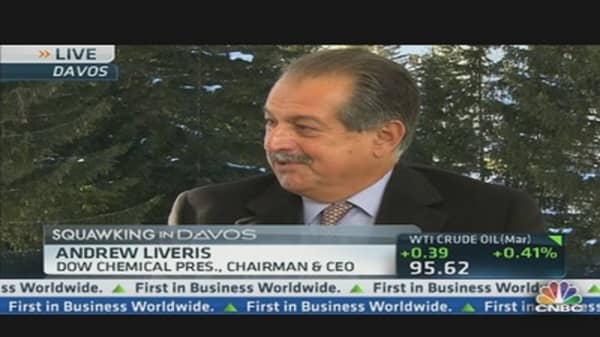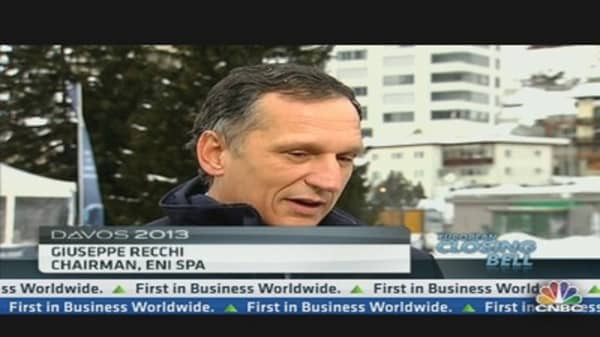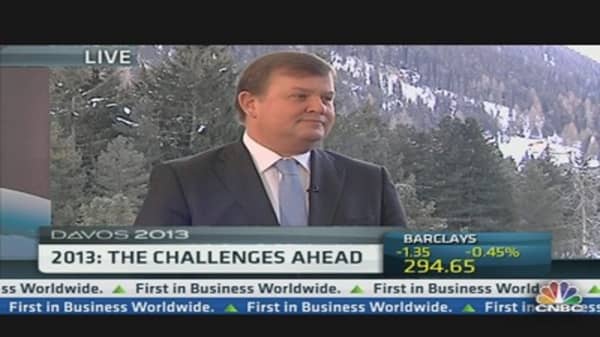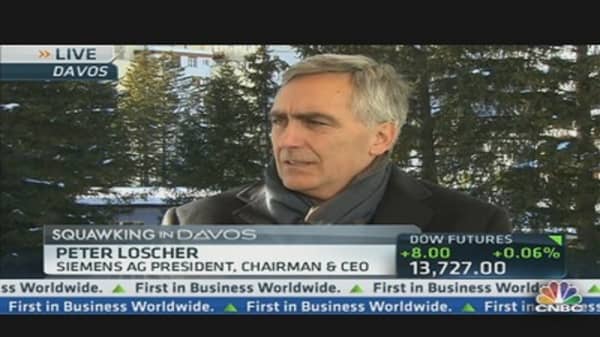Corporate chieftains gathered in Davos, Switzerland this week see reason to be optimistic that the shale boom can reindustrialize the U.S. economy and drive not only U.S. but also global growth.
Cheap energy is the "bull case for the world," Dow Chemical CEO Andrew Liveris told CNBC on the sidelines of the World Economic Forum this week.
"I think it's a game changer and I think it is probably the story of global economic recovery if handled right," he said. "And frankly, the beneficiaries of that will be the U.S. consumer and U.S. jobs."







